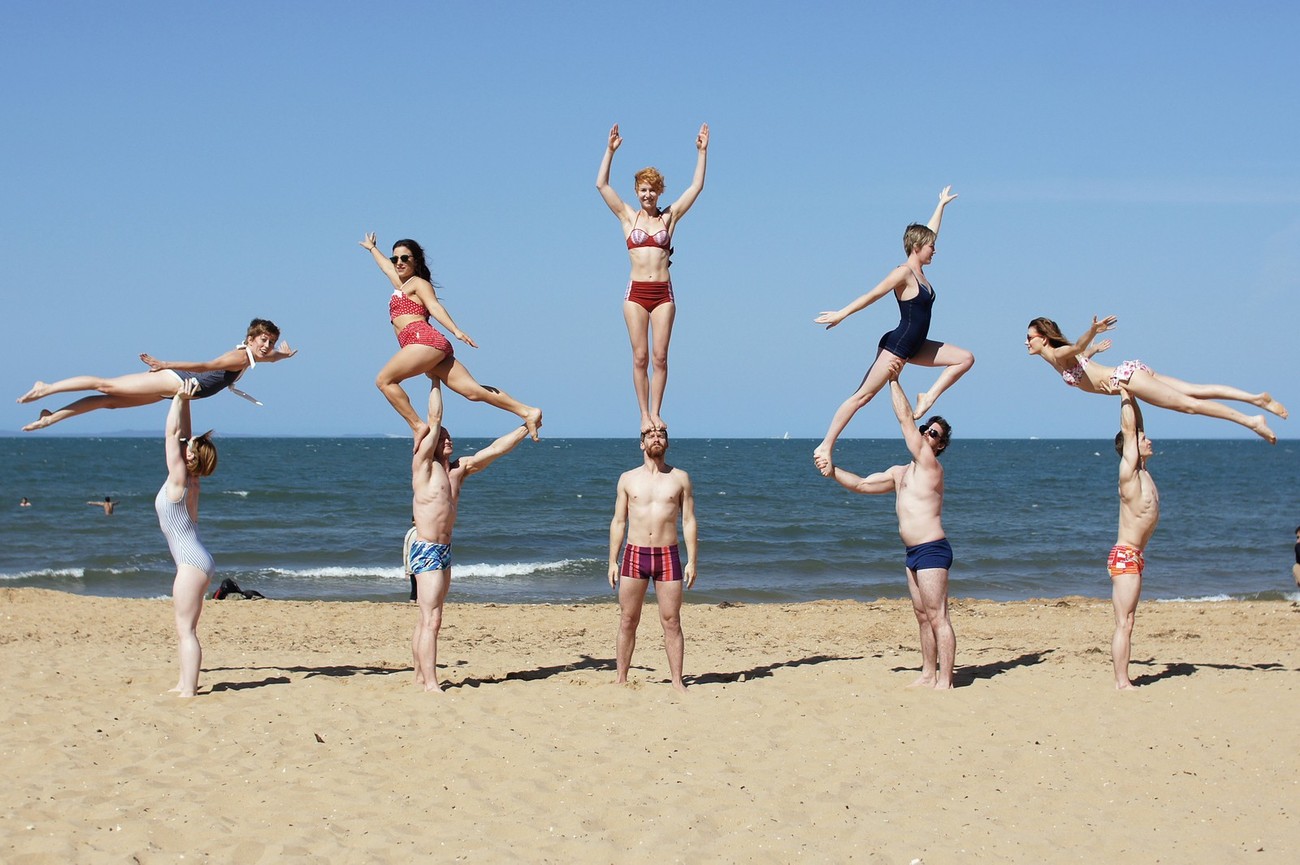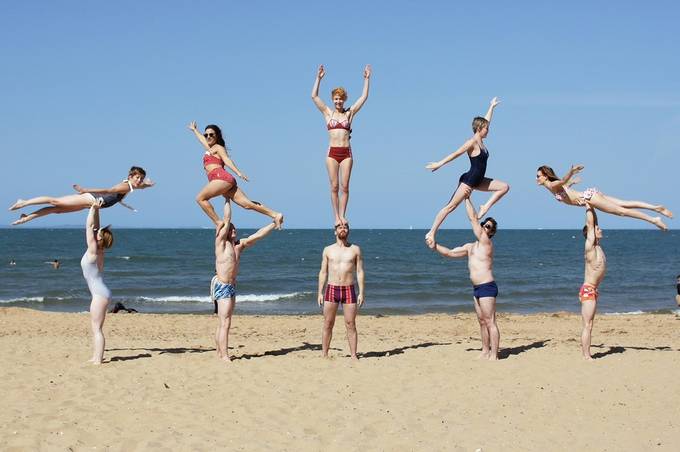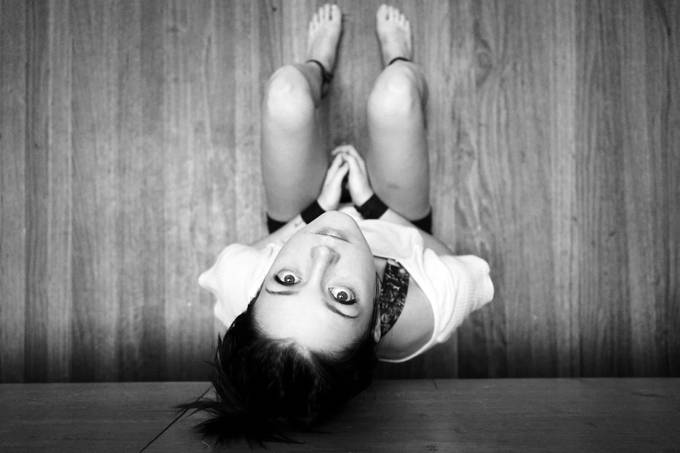It's not too common to read about a circus performer and much less about how her performances inspired her to shoot images and to capture theater like shots. Read our conversation with ViewBug community member jessymay, enjoy!
What inspired you to be a photographer?
My uncle and my father both took beautiful pictures when I was growing up and they inspired me through their passion for photography. Then as I got older and began to travel and perform around the world I became inspired by the people I was with and the places I visited.
What was your first camera and what do you shoot with today?
My first camera was a Canon IXUS which I had until I left school, then I bought my first DSLR camera, a Sony A33. I bought it because it was an inexpensive, well rounded camera and I did not know what style of photography I would be doing. Now I have the Sony A7 which is a perfect light weight, full frame camera for all my travel and theatre photography.
When someone looks at your photos, what do you want them to take away from it, what are you trying to communicate?
I want the viewer to feel a connection to the photograph. Whether it be one of my theatre scenes or a portrait. I want people to feel a connection to the subject and embrace the world captured.
What is it that you love about photography?
I love capturing a moment and freezing the memory for both my self and others. I also love the way I see the world through photography. The more I train my photographer's eye, the more I appreciate the beautiful world we live in.
Photography has helped me see the precious moments in everyday life. While my lifestyle might be different to others it is my normal and photography reminds me of the precious moments that surround us.
Do you try to be conceptual or do you prefer to show the feeling behind a photo?
I think I try and do both. My favourite photographs captures an emotion but I tend not to tell the view what to think. Some times you need to look at all the detail to understand the world shown.
How do you describe your style?
I still don't know how to describe my style of photography. I am constantly experimenting and wanting to try all styles of photography. However the majority of my shots are theatre photography which is my passion. Travel photography is some thing I also enjoy, mostly by convenience. I am constantly growing and I am a bit of a perfectionist. In my photography this means I am quite critical of photographs that don't 'feel like me' but to describe my 'style' in words is still a bit to early in my exploration.
If you had to choose one lens which one would it be and why?
I would choose a Tamron 16-300m because of its versatility and for a travel and theatre photographer it is important to be ready for anything and you rarely have time to change lenses or even cameras. However coming in a close 2nd is the Zeiss 16-35mm F4. It is a beautiful lens that captures so much information with its wide angle for my street scenes and can be a lovely portrait lens. It also creates very interesting theatre shots, if get close enough to the action.
What are your 3 tips for others who want to become theatre photographers?
For theatre photographers you have to know your camera very well and be able to change settings quickly. The dramatic lighting is set, its often quite bright and is ever changing.
I always like to see a show before I shoot, even if its just a video. I familiarise myself with the lighting, performers movements and staging so I have very few surprises.
Explore angles and perspectives. Its always nice to shoot from the audience, however shots from backstage, rehearsal rooms and side stage can make for very interesting photographs of a world the audience does not get to see.
Have you received negative feedback from your work?
Sometimes I receive negative feed back but I always try and see it as constructive criticism. If it is for promotional work or theatre shots I really try and learn something from what people have said. If it is for some of my more creative shoots which are more about self expression and personal taste I take on board any notes about technique and forget the rest because not every photo can be loved by all.
Where did you learn to take photos?
I am self taught. My father brought me an cute little canon IXUS for my high school years and I studied photography in my final year of school. Often family members bought me photography books found in Op shops and my father had an old Pentax guide to photography book from his younger years he would lend me. When I first started traveling I bought my sony A33. I use to shoot on automatic then review the photographs and the settings the camera had used to work out the basic components like ISO, F-stop, white balance and shutter speed. Once I understood more about the basic rules of my camera I started shooting manually and experimenting. The rest of what I have learnt was from trial and error and asking people what was most appealing about an image. If someone said the framing I would analyse that image to try and have a better understand of framing. Even now I am trying to challenge myself by experimenting with all styles of photography and constantly thinking of the best way to tell a story through my photographs.
Raw vs jpg and why?
I shoot all my travel photography and personal photographs as a jpg, fine resolution. It takes up less space and I find I can do every thing I need with that sized file from newspaper and magazine prints to web display. But if I am doing any professional shoots for theatre I always shoot Raw. The larger amount of information stored in the photograph gives me more flexibility.
What do you carry in your camera bag?
I travel light. I have my Sony A7, a multi purpose lens (28-70mm), my 80mm F1.4 portraiture lens and two, 2TB external hard drives for storage and back up. But when I can I also bring along my flash, tripod, underwater camera and macro adaptor.
If you could have the gift of a great photographer who would it be and why?
I would have Diane Arbus ability to connect with people. Her romantic celebration of the different and almost strange has always inspired me. Some of her images can be border line grotesque but beautiful at the same time. I feel a connection to her subjects and want to know their story.
What is the most common mistake you see people making when shooting these days?
In theatre photography I think the biggest thing I see people do is wait for 'the moment' in a scene; the big trick or the applause moment. Then they take the picture and start reviewing it on their camera to make sure they 'got the shot'. But in doing this they are taking their eyes off the stage. I will never review a shot during a show, I always review my work after and keep my eyes glued to the stage. Some of my best photographs are actually the pictures before or after the trick, or when a mistake happens on stage. This is when you get the little looks between performers, a small smile and the raw energy that really shines through in a photograph.
What is your dream location to shoot?
Theatres are my favourite place to shoot but not from the audience. I love to shoot a show from side stage and back stage. It is a whole new world and there is so much to explore.
How do you decide on where to shoot a photo?
I am a full time circus performer and we travel around 10 months of the year, so in a way the company I work for chooses where I shoot my next photograph. I love it. I have been to some incredible places I would have never visited if I was not there for work. Some of my favourite photographs are in the most unexpected places around the world.
What is next for you? Any planned adventures with your camera?
Right now, I am staying in one place for almost two months, which is very rare for me. I am taking this opportunity to set up some more photo-shoots and find somewhere to learn a bit about studio lighting. I have never worked in a studio before and I think now is a perfect opportunity.
Then it is back off to Europe and who knows where else my camera and I might end up.
What is your goal with your photography?
At the moment it is to continue expressing and challenging myself in the world of photography. In the future I would love to continue taking theatre, street, travel and my own creative photographs as a full time job.
















